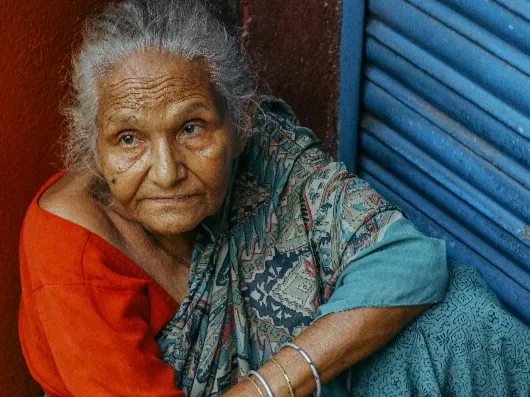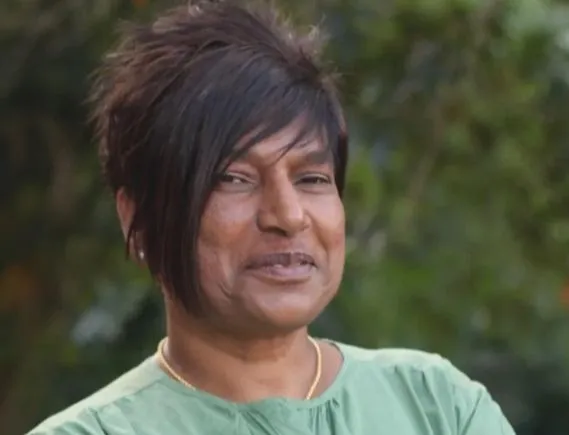
Regrettably, Indian communities are witnessing a gradual decline in the once robust value system that traditionally emphasised respect and care for older people, says the writer.
Image: Anubhaw Anand/Pexels.com
WHEN Indian communities first arrived in South Africa in 1860, they predominantly came as indentured labourers and traders with a value system based on their ancestral land. They prided themselves on their distinctive practices and values shaped by their diverse backgrounds, which they imported from the subcontinent.
Among their value and cultural systems was a strong emphasis on non-violence, deeply rooted in the teachings of Hinduism, Islam and Christianity traditions. This ethos permeated their approach to conflict resolution, fostering a culture of dialogue and mutual understanding within their communities. They often employed panchayat-style mechanisms for resolving disputes, where elders and respected leaders guided discussions within tightly-knit groups based on shared religious or caste identities.
Furthermore, while tensions could arise, acts of violence within these communities were typically rare and confined. Such instances were often driven by familial ties or notions of honour, manifesting more as private concerns rather than overt public confrontations. This internalised approach allowed for a unique societal dynamic prioritising harmony and collective well-being.
Respecting elders is a fundamental value deeply rooted in various cultures, particularly Hindu, Muslim, and Tamil traditions. Older individuals are regarded as treasures of wisdom and life experience in these communities. Their insights are often sought after during critical decision-making processes, reflecting a belief that they have a unique perspective shaped by their years of living.
Titles such as Thatha (grandfather), Aiya grandmother), Party (grandmother), Ajji (grandmother), Dada (paternal grandfather), Nani (maternal grandmother), and Maulana (revered elder in Islam) carry immense significance. They are imbued with a sense of reverence. These titles denote familial relationships and highlight the respect and honour bestowed upon elders.
Within the family structure, elders often hold a privileged status, guiding younger generations through challenges and providing support, reinforcing the cultural belief that wisdom comes with age. This respect for elders fosters strong family bonds and community ties, ensuring that traditions and values are passed down through generations.
Regrettably, Indian communities are witnessing a gradual decline in the once robust value system that traditionally emphasised respect and care for older people. In some areas, this erosion manifests in various alarming ways, including neglect, verbal and physical abuse, and a troubling shift in attitudes that devalue the contributions and wisdom of older generations. Families that once took pride in looking after their elders now often overlook their needs, leading to feelings of isolation and vulnerability among seniors.
This disturbing trend not only undermines the cultural fabric of these communities but also raises serious concerns about the well-being and dignity of a population that has long been revered for its contributions to society. Acts of violence against older people are increasingly being perpetrated not only by strangers but also within the very fabric of our communities and even within the confines of family units.
This alarming trend signifies a troubling departure from the deep-seated reverence and respect for elders that has long been a cornerstone of Indian culture. Traditionally, Indian society has highly regarded its senior members, viewing them as carriers of wisdom, experience, and cultural heritage. The factors contributing to this rise in violence are complex and multifaceted. Economic strain, such as rising living costs and inadequate support systems, can lead to desperation and frustration.
Social isolation, exacerbated by urban migration and changes in family structures, leaves many elderly individuals vulnerable and alone, sometimes making them targets for those around them. Additionally, the gradual erosion of familial bonds, fostered by rapid modernisation and shifting societal priorities, undermines the protective networks that once surrounded our elders. The vulnerability of our elderly population has significantly increased compared to previous generations.
In some so-called Indian families, older people are unfortunately perceived as a burden by their children and grandchildren. This perception can lead to a lack of emotional and physical support for older adults, making them more vulnerable to various forms of violence and crime. It is imperative to underscore that no circumstance can ever validate acts of violence, whether aimed broadly at individuals or specifically targeting older people.
Such heinous acts against this vulnerable segment of our population not only cause immediate and profound physical and emotional harm but also threaten to fracture the moral fabric of our society. This erosion of values risks alienating us from the principles that have shaped our heritage and guided our actions for generations. As our society progresses and evolves, it becomes increasingly essential to confront these critical issues and to reaffirm our commitment to caring for and safeguarding our senior citizens.
We must ensure that they are treated with the utmost dignity and respect they rightfully deserve, fostering an environment where they can live with security, joy, and the acknowledgement of their invaluable contributions to our communities. Let us honour and cherish our elders, for history has a way of repeating itself. Our children observe our actions; by showing kindness and compassion to the previous generation, we set an example that encourages our children to do the same for us. Say no to violence against the elderly.

Professor Nirmala Gopal.
Image: File
Professor Nirmala Gopal is an academic leader: School of Applied Human Science at the University of KwaZulu-Natal.
** The views expressed do not necessarily reflect the views of IOL or Independent Media.
Related Topics: